All images courtesy of Marquis Hill
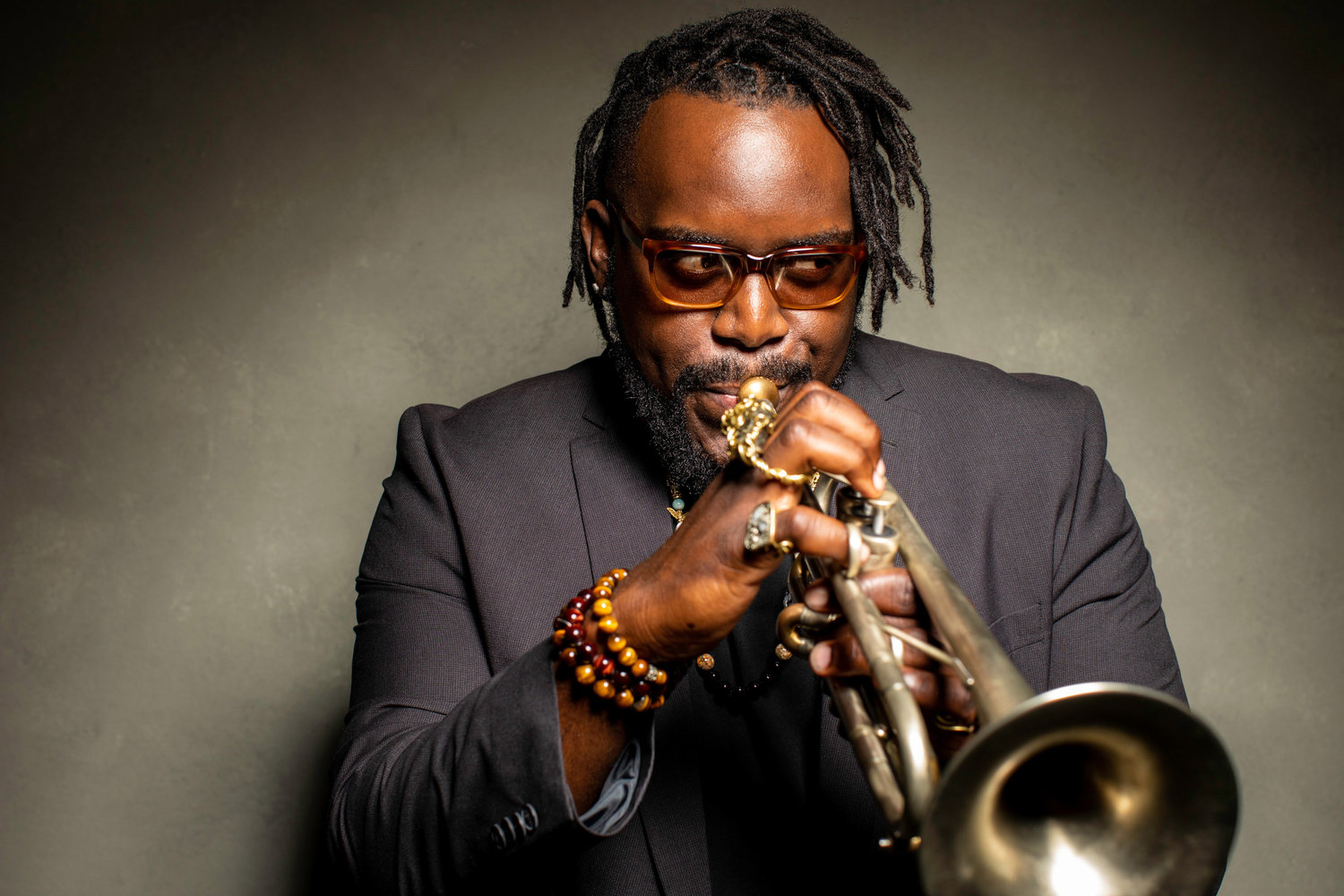
How many Jazz fans have we got out there?
For me, personally, I’ve always felt that Jazz was best served in the fall and winter. Something about the tranquility of certain pieces really pairs well with the somber gray skies and brittle, cold winds. Free Jazz and Soul Jazz can really curl up nicely with a warm cup of tea on a dark, rainy, or snowy winter evening. Picture this, you’re nestled up on your couch, maybe you’ve got a book. Or, perhaps you’re just relaxing, eyes close, breathing deeply, letting go of the stress, while masterful, improvisational, mind-opening art pours into your ear holes. Sounds kinda nice, right?
Over the last several years, I’ve gotten pretty heavily into Jazz. For a long time, I was sort of circling the wagons, dipping my toe in the proverbial pool, which at the time for me mostly consisted of Buddy Rich, Gene Krupa, and a hint of Dizzy Gillespie‘s “Salt Peanuts.” What really drew me in was the drums, and once I got hooked on vinyl, it was all over from there. These days, I am all over the map when it comes to Jazz. I’ve developed a taste for Hard Bop, and Fusion, but what I love most is Free Jazz and Soul Jazz. I love how if you allow it to, that music can truly crack your skull wide open and bend your brain in ways you never imagined. For me, there is no going back. I love “traditional” music, but I also like my music a little “weird” or “off the beaten path.” Whatever you want to call it- I definitely love it. Give it a shot. Maybe you will, too.
On this cold winter Monday, I present to you, my “sit down” with the one and only Marquis Hill. Marquis is one of the leading Jazz musicians out there today. Like so many before him, he is carrying on the tradition of expanding boundaries, and pushing the heart and soul of Jazz as an art form and genre toward horizons unknown. Yes, Marquis is a trumpet player by trade, but he is a true artist through and through. Listening to the music of Marquis Hill is a true education, and if you’re into Jazz, then boy have I something for you. This year, Marquis has a new album out, it’s called Soul Sign and it’s a true modern-day classic (in my opinion anyway). If you’d like to check it out, as well as learn more about the music and artistry of Marquis Hill, head over to his website here. So sit back, throw Soul Sign on and give this interview a read. It’s pretty special. Dig in.
Andrew:
Marquis, thank you for taking the time to speak with us. This has certainly been a weird year. What have you been doing to pass the time?
Marquis:
Thanks for having me, it’s good to speak with you. This year has been quite interesting indeed. The energy of the entire world has often seemed out of balance. I’ve been trying my very best to pour life and its real meaning into my music and creativity. Writing music, producing, and spending time on my horn have helped keep me more balanced during these times of multi-scale turbulence.
Andrew:
Tell us a bit about your backstory. How did you get into music?
Marquis:
I was fortunate enough to be raised in a household where good music played all of the time; I was raised listening to the Gospel and Soul sounds of the 60s and 70s. My mother would constantly play Stevie Wonder, Earth Wind & Fire, Smokey Robinson, Barry White…etc …around the house. This was the type of “sound excellence” I heard literally around the clock. Then I joined the band in 4th grade – on drums; I switched to trumpet in the 5th grade. I was exposed to Jazz music in the 5th grade and I’ve been in love with the music ever since. I played the trumpet throughout high school and got somewhat more serious about it in my junior year. (That is – once I realized I could actually make a decent living doing something I truly Loved). I then attended Northern Illinois University, for Music education; later, I did a master’s in Jazz pedagogy, at Depaul University. In several ways, “the rest is history,” as we say.
Andrew:
My understanding is you began with the drums before you switched to the trumpet. Do you still play drums, and what lead to you making the switch?
Marquis:
I still play the drums but my primary instrument is, of course, the trumpet; I play the drums now more or less to work on my time and to gain perspective in composing. I actually switched to trumpet in the 5th grade because my older cousin played the trumpet. Compellingly – I admired my cousin very much and wanted to play the trumpet based on that alone. As we often say – everything happens for a reason! I’m truly grateful that I picked up the instrument when I did.

Andrew:
You’re primarily associated with Jazz, but you’ve been a big proponent of breaking down barriers between Jazz, HipHop, and Soul. I think that’s fantastic. I am a big fan of the recent movement within Jazz which incorporates all of these elements. I loved your quote, “It all comes from the same tree. They simply blossomed from different branches.” I couldn’t agree more and I would love for you to expand on that idea for us.
Marquis:
Jazz, Blues, Rock, Gospel, Hip-Hop, R&B, Soul, Rap, etc….at their core are all the same music. Black American Music. They all stem from and are created from the same root: the insistently poetic depths of the Black American experience. Throughout history, genres and titles were assigned to these Black American expressions but when we trace the history of popular music in America (as far back as slave hymns and ring shouts) – the Black voice and cultural influence have been the vigil-like core – yes – of all music created in America.
The music expanded, of course, and as the Black American experience variously burgeoned and transformed, so did the uber-human sounds – what much of the world simply calls “American.” But, again, the root is this voice always emerging as Black Experience.
Andrew:
As a songwriter, where do you draw inspiration from? Your music covers so many genres and has so many elements at play. The symbiotic relationship between more traditional Jazz being fused with the rhythm and flow of Hip-Hop and Spoken Word is incredible. How does it all come together for you?
Marquis:
For me, all of these different components come together in a very natural or organic – a growth-based manner. And, in actuality, there’s little “though as thought” – or hyper-theoretic self-consciousness involved. In a real sense, there is no thought. I simply hear these components as an extension of one another. Once I truly erased the “genre” boundaries in my mind and realized that all of these different types of music stem from the same heart, I actively received the freedom to simply write and create the music that feels good – that comes from the heart to go to the heart – from self’s depths to that of the people, Creating a Beautiful bridge AND bond.
Andrew:
One of the reasons I love Free Jazz and Spoken Word is it allows you to listen without boundaries. If you allow it to be, it can be a truly mind-opening experience. I get that same feeling when I listen to your music. I am wondering if that is how you approach it as well?
Marquis:
Absolutely! One of my main goals as an artist is to stretch the boundaries and create something that transcends listeners every bit as much as it gives to their deepest and best. Being from Chicago, “Avantgarde” and “Free Jazz” have certainly influenced my sound – in some ways tremendously. I came up listening to the “AAMC” and generous artists like Fred Anderson and Malachi Thompson. That sound lives within me and my music — naturally!

Andrew:
Let’s go back a little bit. You were born and raised on the South Side of Chicago. What a culturally diverse area! How have your roots there informed your music as you’ve gone along?
Marquis:
I always preach that the South Side of Chicago shaped my sound and – really – the man I am today. So many lessons learned and knowledge attained from my life experiences on the epically storied South Side. Hanging out at places like the Velvet Lounge and the New Apartment Lounge (largely under Fred Anderson, Von Freeman), helped to shape my personal sound, goals, and strategies. This is somewhat hallowed for me. Here I learned how to play and – as importantly – how to connect to the music in such a way as to really connect with the people.
Put simply — there’s an extremely important place in my heart for Chicago, truly my home!
Andrew:
As a trumpet player specifically, who are your greatest influences?
Marquis:
Donald Byrd and Art Farmer both had a great influence on my sound. I was attracted to their lyricism, and the way they approached chord changes instantly, I could clearly hear what their horns were saying!
Andrew:
You formed the Blacktet, and I have to say- you guys are incredible. There have been so many incredible and memorable Jazz bands over the years, including Sun Ra’s Arkestra, Coltrane’s “Classic Quartet” and Robert Glasper’s Trio/Experiment. I truly think that the Blacktet sits alongside those groups. How did the group form and how has it evolved to what is today?
Marquis:
I formed the Blacktet back in 2011. I had just written my first set of music and wanted to document the sounds I had created. I reached out to some of my close friends living in Chicago at the time and we hopped in the studio and recorded my first record New Gospel. The group has definitely expanded and evolved since then; my compositional approaches continue to evolve as well. The Blacktet is very dear to my heart. I take this great Black American art form we call “Jazz” seriously, let’s face it. (And — in truth — how could one not do so?!) The Blacktet’s main priority was and is to “adventure” forward while uniquely preserving the very essence of the tradition. I look at this music as a continuum, and, gratefully, the Blacktet is a part of this magical continuum.
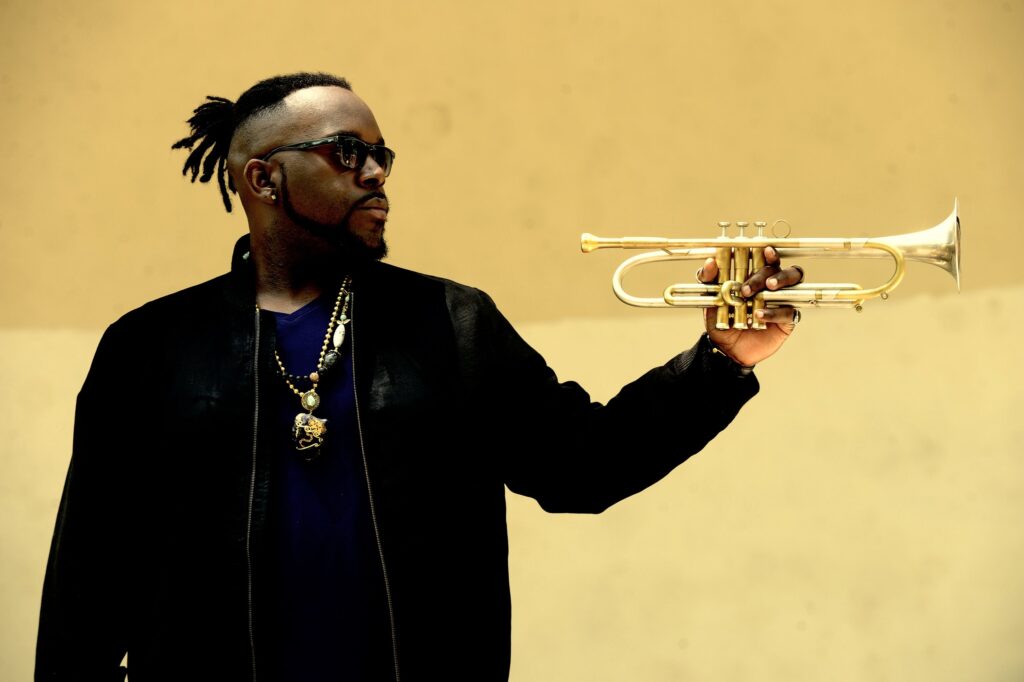
Andrew:
You released your debut album, New Gospel back in 2011. This year (2020) you’ve released a new album called Soul Sign. As a musician, songwriter, and bandleader, how do you feel you’ve progressed over the last 9 years? What is your message with your newest effort?
Marquis:
I’m sensing that I’ve progressed significantly in concept, authenticity, and the essential fruit of such: That is – in Sound. Back in 2011, I had my own sound but it was still being shaped and molded in some basic ways. I needed more experience and very particular kinds of bandstand lessons. Nine years later, I’m still on that search for “The Sound” – this synapse that really connects to real souls [via this lab-like labyrinth called the ear]. This is a forever search – one that, beautifully, never really ends. I’m also more established in my composition approaches and goals. I know with much more nuance just how I want to sound; the goal, of course, is to seek all good things out, so that I can finally gift the sound I have in my head to the dear ones attending.
One of the main messages of my latest release Soul Sign is, “Knowledge of self.” At the moment of birth for all of us, the stars and planets were fixed in a certain position in the sky, the world had a specific energy the day we were born. Your energy differs from my energy, but we all possess these energies (suggested by Zodiac Signs). This project explores these energies and encourages listeners to learn more about these, and apply the very best of this knowledge to everyday life, for real benefit, to others and self.
Andrew:
Shifting gears now. What other passions do you have? How do they inform you musically and as a songwriter, if at all?
Marquis:
I’m passionate about knowledge, knowledge of self, researching true history, love, family, and many other things. They all influence my everyday life which influences my music. I’m inspired by all of the world around me (the good and the bad). My music is a reflection of my life experiences.
Andrew:
Are you into vinyl? Cassettes? CDs? Or are you all digital now?
Marquis:
I collect vinyl. They simply sound better, there’s no way around it! I do frequent digital streaming platforms, it’s the way of the world.
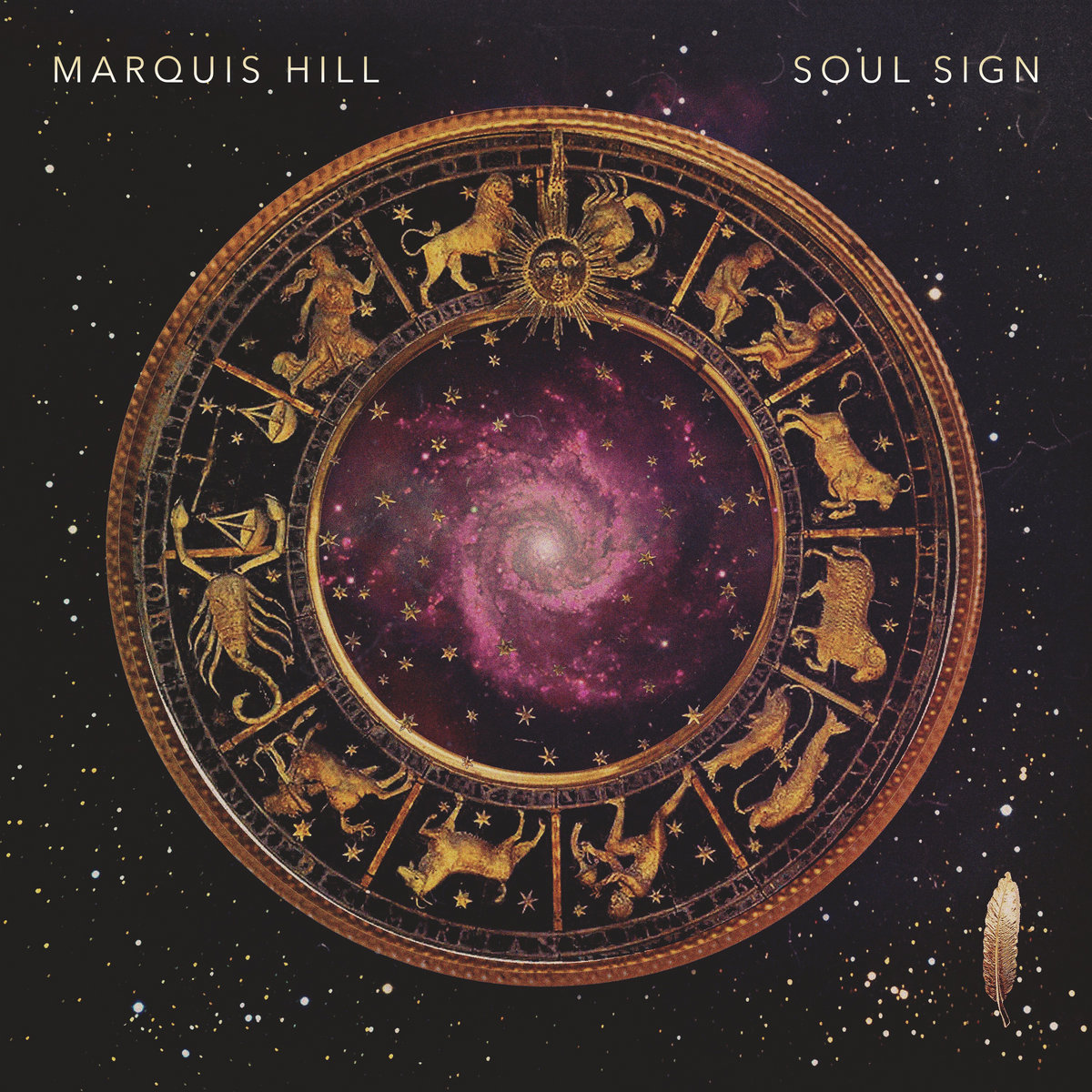
Andrew:
This may be a hard question, but what are a few albums that mean the most to you and why?
Marquis:
Lee Morgan, Candy was the first Jazz recording listening experience; this record made me fall in love with a very particular essence in “Jazz.”
Marvin Gaye’s, Vulnerable is simply a masterpiece! I listen to this record, I hear the past, the now, and the future — all made one. I studied Marvin’s background vocals on this project. They’re a university within themselves!
Andrew:
It’s been a weird year, but we’ve still seen a lot of great music released in 2020. What are some of your “must-have” albums of the year?
Marquis:
I’ve been checking out: Gregory Porter, Joel Ross, Knxwledge, and Xavier Omar’s new releases — truly Beautiful and inspiring music!
Andrew:
Once COVID-19 calms down, what’s next for you?
Marquis:
I look forward to resuming touring, traveling, and connecting with the bandstand people, as we might call them. Really playing music, in real-time — for real [and precious] people. The music has always been for The People; I truly miss that connection – this multi-faceted communion.
Andrew:
Last question. What changes would you like to see within the industry that would benefit both the fans and artists alike? What advice would you have for young artists who are just starting out?
Marquis:
That’s a tough question to answer, the industry is in constant change. Especially now, with COVID-19 and the effects, it has had on artists. One thing that comes to mind is fans having direct, and meaningful connections with artists. Social media has definitely helped with this. The more vulnerable an artist is – where fans can substantively connect, the richer the relationships that fans will develop with art; this benefits all in very meaningful ways…(This one is tough to answer; I’m still figuring the game out myself and can’t imagine there might come a time when I’m not actively responding and adjusting for improved results to more lovers of this art).
My advice for the young artist is to actually, really think about what it means to be true – or to be “true to one’s self,” so to speak, and to gradually implement attitudes and schemes consistent with that. Study themselves and that by which they are moved to good things for all – what truly resonates with one’s depths. Discover your passion and pour as much energy into it as possible. Also – don’t be afraid to really study your craft – search for your personal voice, above all. The aspects that will make you stand out in substantive ways are never negligible.
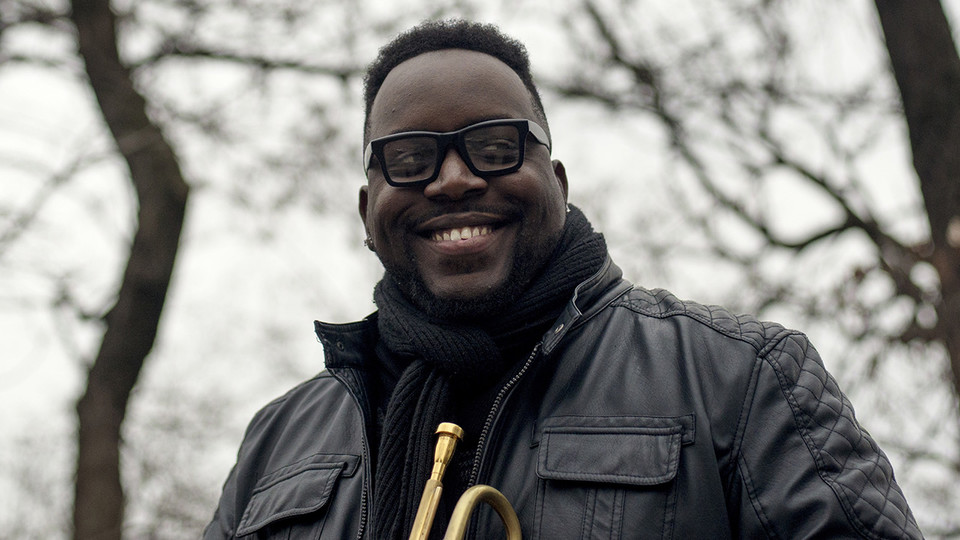
Dig this interview? Check out the full archives of Vinyl Writer Interviews, by Andrew Daly, here: www.vinylwritermusic.com/interviews
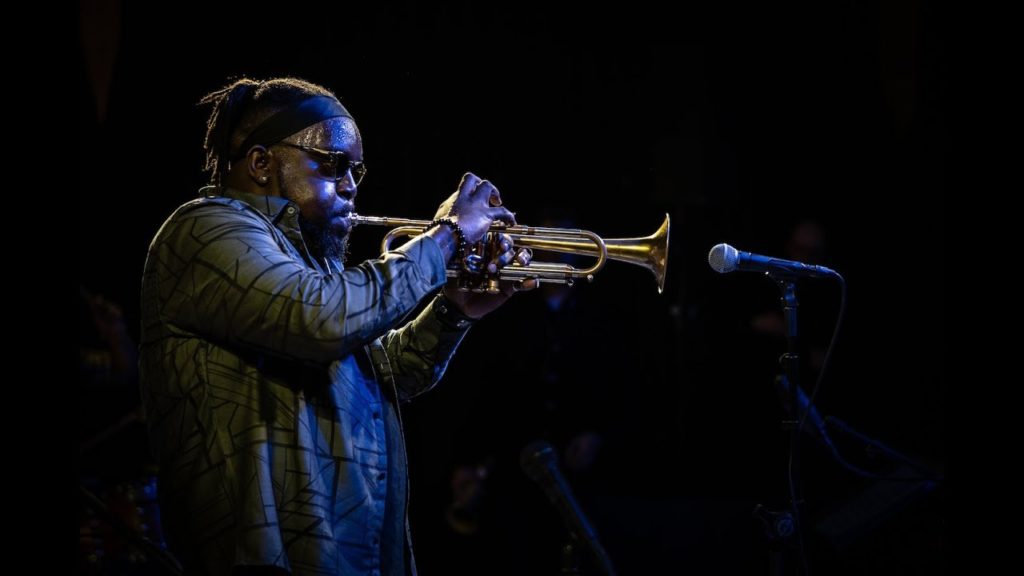




Leave a Reply